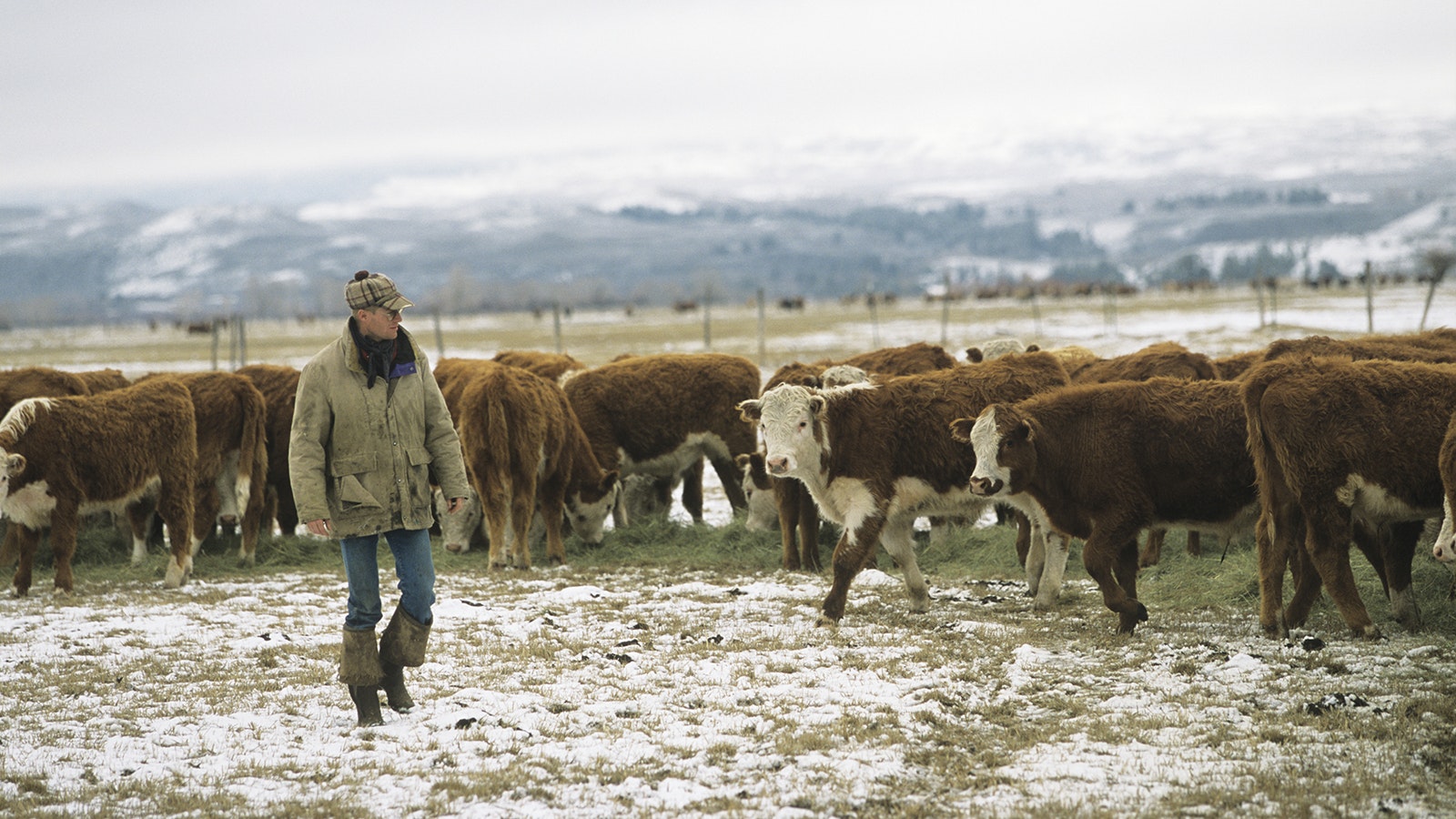Albertsons on Wednesday announced that it’s terminating a $25 billion merger with Kroger and plans to file suit seeking billions in compensation for actions it described as “self-serving” and willfully “insufficient.”
The merger collapse comes one day after a state judge in Washington blocked the deal in a suit filed by Washington’s Attorney General and a federal judge in Oregon temporarily blocked the deal in a suit filed by the Federal Trade Commission and several states including Wyoming. A third suit filed by Colorado’s Attorney General is still pending.
On Wednesday, both companies threw accusations at each other after the deal’s failure.
While Albertsons accused Kroger of willfully not taking all the actions it could have to secure the merger, Kroger said Albertsons’ claims against it are meritless, and that the merger is really falling apart because Albertsons constantly “interfered” with the merger process.
At stake between the companies is a $600 million termination fee, which Albertsons said is due immediately, but that Kroger says Albertsons is certainly not entitled to.
“Rather than fulfill its contractual obligations to ensure that the merger succeeded, Kroger acted in its own financial self-interest, repeatedly providing insufficient divestiture proposals that ignored regulators’ concerns,” Albertsons’ General Counsel and Chief Policy Officer Tom Moriarty said. “Kroger’s self-serving conduct, taken at the expense of Albertsons and the agreed transaction has harmed Albertsons’ shareholders, associates and consumers. We are disappointed that the opportunity to realize the significant benefits of the merger has been lost on account of Kroger’s willfully deficient approach to securing regulatory clearance.”
More On Albertson’s Complaints
Among Albertsons’ complaints is that Kroger “willfully breached” the merger agreement by repeatedly refusing to divest assets necessary for antitrust approval, ignoring regulators’ feedback, rejecting stronger divestiture buyers and failing to cooperate with Albertsons.
That left Albertsons in limbo, unable to pursue other business opportunities, which caused its shares to experience significant loss. In addition, as a result of Kroger’s willful failure to secure the merger deal, Albertsons’ shareholders won’t be getting the multi-billion-dollar premium Kroger had agreed to pay, Albertsons alleged.
“Albertsons’ claims against Kroger are confirmed by the recent rulings from the United States District Court for the District of Oregon and the King County Superior Court for the State of Washington, which granted regulators’ requests to block the merger,” Albertsons continued in an emailed statement. “Those results could have been avoided but for Kroger’s breaching conduct.”
Albertsons said it will also seek recompense for its time and effort, as well as the hundreds of millions of dollars it devoted to obtaining approval for the merger.
“We are taking this action to enforce and preserve Albertsons’ rights and to protect the interests of our shareholders, associates, and consumers,” Moriarty said. “We believe strongly in the merits of the case and look forward to presenting it to the court to hold Kroger responsible for the harm it has caused.
No Break Fee For Albertsons, Kroger Says
Kroger has its own set of complaints and told Cowboy State Daily in an email that Albertsons’ claims have no merit, and that they look forward to proving that in court, as well as highlighting actions that they say Albertsons took to interfere with the merger.
“Kroger refutes these allegations in the strongest possible terms, especially in light of Albertsons’ repeated intentional material breaches and interference throughout the merger process,” the statement says. “This is clearly an attempt to deflect responsibility following Kroger’s written notification of Albertsons’ multiple breaches of the agreement, and to seek payment of the merger’s break fee, to which they are not entitled.”
The statement goes on to say that Kroger went to “extraordinary lengths” to uphold their end of the merger agreement.
“The facts will make that abundantly clear,” the statement says. “We are incredibly proud of the Kroger team for how they worked through the merger process, with the highest degree of integrity and commitment. We are confident in Kroger’s value creation model to drive sustainable growth. Kroger’s Board of Directors is currently evaluating next steps that serve the best interests of Kroger’s customers and associates and create value for shareholders.”
Largest Merger Ever
The proposed merger with Albertsons was the largest proposed merger in U.S. supermarket history.
Kroger operates more than 2,700 stores across 35 states and the District of Columbia and has 20 distinct store brands, including King Soopers, QFC, Fred Meyer, Ralphs, Fry’s Food Stores and Harris Teeter. Its holdings also include 35 manufacturing facilities that produce private label items for Kroger, as well as 2,252 pharmacies and 1,637 fuel centers.
It employs a collective 430,000 people, 65% of whom are represented by unions.
Albertsons operates 2,269 stores across 34 states and the District of Columbia. It to, has around 20 different store brands, including Safeway, Vons, Jewel-Osco, Shaw’s, Haggen, Star Market and Tom Thumb.
Like Kroger, it also owns manufacturing facilities that make private label brands — 19 of them in all, and it also operates around 1,725 pharmacies and 402 fuel centers. It employs around 285,000 people, of which 200,000 are union workers.
The companies testified during the case in U.S. District Court in Oregon that they do compete head-to-head in many markets across the country, and that they check each other’s prices on a regular basis. That factor was cited by the judge in the Oregon case as one of several reasons the judge believed the Federal Trade Commission would probably win its case seeking to block the merger on the merits.
The judge in the case also cited analysis by an FTC economist, who said that post-merger 1,922 supermarket markets would be anti-competitive under 2023 merger guidelines.

Lightning Rod For Criticism
The proposed Albertsons-Kroger merger had been a lightning rod for criticism from a diverse array of groups, who said the deal would hurt consumers by creating a near monopoly and widen food deserts.
United Food and Commercial Workers International Union led the charge against the merger, with UFCW Local 7 President Kim Cordova among the most vocal critics.
Cordova could not be reached Wednesday, but on Tuesday, she told Cowboy State Daily she felt the two judges that issued injunctions against the deal, had gotten it “right.”
“These are very well-reasoned decisions, and they’ve addressed a lot of our concerns that we had raised through this, our entire opposition, from C & S not being a viable competitor and that they were not going to be able to compete and bring competition back to the market,” she said. “And also Kroger and Albertsons’ empty promises, to take care of workers and to lower prices. None of that would have been enforceable had the merger been approved.”
Cordova has frequently cited what happened during the last Albertsons merger as an example of how the whole divestiture song-and-dance goes with these larger merger deals.
In 2015, during the Safeway-Albertsons merger, a number of stores were sold off to a grocery chain called Haggen. But in less than a year’s time, Haggen ended up going bankrupt, and Albertsons repurchased many of the stores it had sold off.
In the wake of all that, workers lost pensions and had to start all over again, Cordova has told Cowboy State Daily previously. In addition, USDA showed food deserts in Wyoming growing larger in the timeframe following the Safeway-Albertsons merger.
Moving On And Moving Up
UFCW groups as a whole had urged Albertsons and Kroger to end the merger deal on Tuesday and redirect the billions they were spending on it to their stores.
Albertsons, in addition to the merger termination announcement, talked about what it’s doing to do just that.
Pre-merger, Albertsons had indicated some Albertsons stores might have to close, but post-merger it’s another day.
“We start this next chapter in strong financial condition, with a track record of positive business performance,” Vivek Sankaran said. “Over the last two years, we have invested in our core business and in new sources of revenue while enhancing our capabilities through the rollout of new technologies.”
Sankaran added that the company has a “rich asset base,” with many “beloved brands in premium locations.”
“These assets provide us the opportunity to optimize the acceleration of our Customers for Life strategy and other value-creating initiatives,” he said. “We are excited about our agenda to create long-term value and are committed to returning cash to our stockholders both in the near term and in the future.”
Cerberus Capital Management, one of Albertsons’ largest shareholders, even weighed in.
“While we are disappointed with the courts’ decisions, we remain confident in Albertsons’ strength as a standalone company,” the company said in its statement. “We believe that it is significantly undervalued in its current trading range. Accordingly, Cerberus has no intention of selling any of its shares in the company.”
Cerberus first invested in Albertsons in 2006 and made additional investments in 2013 and 2015.
“As a long-term investor in and partner to Albertsons across multiple investments and throughout the evolution of its competitive environment, Cerberus is producing of the Company’s performance and will continue to be a strong supporter of Albertsons, its talented leadership team, and its dedicated associates.”
Albertsons said it will reveal more about its future direction in its January earnings call, but in the meantime added that it will raise its quarterly cash dividend 25%, from $0.12 per share to $0.15 per share. They also plan a share repurchase program of up to $2 billion, which includes an existing authorization. Share repurchases are common when a company believes it is being undervalued by the market. Both efforts will be funded with cash generated from Albertsons’ operations.
Renée Jean can be reached at renee@cowboystatedaily.com.





